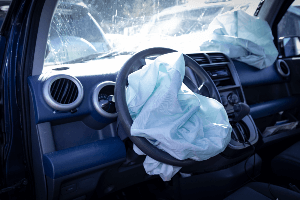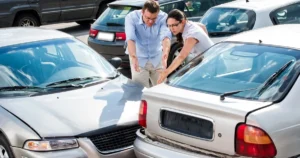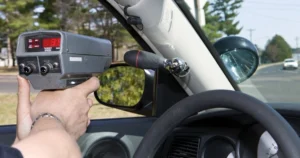 Car insurance companies often declare vehicles a total loss after a serious accident. This is because the cost to repair the vehicle is greater than its actual cash value. Actual cash value refers to the market value of the vehicle at the time of the accident.
Car insurance companies often declare vehicles a total loss after a serious accident. This is because the cost to repair the vehicle is greater than its actual cash value. Actual cash value refers to the market value of the vehicle at the time of the accident.
Older vehicles that are involved in relatively minor crashes are at a greater risk of being declared a total loss due to how quickly vehicles diminish their value.
When a vehicle is totaled, victims may be unsure about their legal options, not only for recovering compensation for medical expenses and other damages, but also recovering the remaining value of their totaled vehicle.
Below, our experienced South Bend vehicle accident attorneys are prepared to help you seek full compensation for your damages. There are no upfront fees for our services, which means no risk to you in working with us on your claim.
How Your Car Being Totaled Could Benefit Your Claim
Insurance companies routinely downplay the severity of injury claims because they are looking to avoid paying full compensation to the victim. However, if your vehicle was totaled, it becomes more difficult to argue you were not injured in a serious accident.
Insurance companies also relate the severity of a victim’s injuries to the damage to the vehicle. If your vehicle did not suffer significant damage, the insurance company may assume your injuries cannot be that serious.
That said, insurance companies could still downplay the severity of your injuries if your car is not a total loss. They may cite other reasons for undervaluing your claim, such as statements you made or social media posts.
It is important to remember it can be a challenge to recover maximum compensation even if a vehicle has been totaled. That is why you should strongly consider seeking experienced legal representation.
How do Insurers Determine the Fair Market Value of a Vehicle?
In Indiana, fair market value means the average trade-in value found in the National Automobile Dealers Association Official Used Car Guide. The valuations in this guide are determined by CCC Information Services, Inc. or other authorities that are approved by the Indiana Bureau of Motor Vehicles (BMV).
However, the BMV can determine the fair market value upon request if the fair market value cannot be determined from the source material referred to above.
Whose Insurance Pays for a Totaled Car?
If another driver is at fault for the crash, the cost to repair your vehicle or the actual cash value of your vehicle should be paid by the at-fault driver’s insurance company.
Even if the at-fault driver has the minimum required coverage for property damage, it will likely cover the actual cash value of your vehicle. The minimum required coverage in Indiana is $25,000 for property damage.
If you caused the crash, you would likely file a claim with your own insurance company for the cost of repairing your vehicle or for the actual cash value of your vehicle if it was totaled. Collision coverage would pay these costs, as it is first-party coverage. However, you need to have this extra coverage to use it.
If you cause a collision and do not have collision insurance, it is unlikely you will be able to get reimbursed by your insurance company for the actual cash value of your vehicle.
In a first-party claim, you would need to pay your deductible before the insurance kicks in. If the actual cash value of your vehicle is $3,000 but your deductible is $1,000, your insurance company will only pay you $2,000.
Recovering the Full Value of Your Vehicle
Under state law, insurers apply for a salvage title for a vehicle when they determine the cost to repair the vehicle is 70 percent or more of the fair market value of the vehicle before the crash. This percentage is known as the total loss formula. Most states have their own total loss formula and when they do not, insurers will weigh the cost of repairs against a car’s actual cash value.
You can dispute the declaration of a total loss of your vehicle by disputing the insurance company’s valuation of your vehicle. You may be able to present:
- Recent pictures of your vehicle
- Documentation showing that the car was well maintained
- Detailed information about the sale price of similar cars in your area
- And/or request an independent appraisal from an experienced mechanic or repair shop – if the independent appraisal sets the value of your car higher than the insurance company did, you may have a strong case for your car not being declared a total loss.
It is also important to hire a lawyer to help you. An experienced attorney will have dealt with insurance companies countless times and knows how to negotiate. An attorney can also research the actual cash value of your vehicle based on information from car dealerships and auto websites like Kelley Blue Book.
If you do not dispute that your vehicle is a total loss, you need to make sure you receive the remaining cash value. You and/or your attorney can conduct research to estimate the value of your car. If the insurance company offers less than your vehicle is worth, your attorney can negotiate on your behalf.
What if Your Auto Loan is Not Paid Off?
If your car was declared a total loss, but you still owe money on your auto loan, the insurance company will pay the lender first. If the settlement is more than what you owe, you will receive whatever remains after your loan is paid off.
However, sometimes the actual cash value of your vehicle is less than what you still owe on your loan. When this happens, you are responsible for paying off the rest of your loan. The problem is you may still owe thousands of dollars and many people do not have immediate access to that amount of cash.
This is where gap insurance comes in. Some lenders require you to purchase this insurance because it covers the difference between what you owe on your loan and your vehicle’s actual cash value. This ensures you can cover the rest of your loan if you get into a crash that totals your vehicle.
Even if your lender does not require gap insurance, you can purchase it from a lender or car insurance company.
Contact Us to Discuss Your Car Crash Claim
For decades, the attorneys at our firm have helped crash victims recover compensation for medical expenses, lost wages and other damages. We are prepared to manage the legal process on your behalf with no upfront fees.
If you have legal questions following a car crash, give us a call today. We can explain how we may be able to assist you.
Pfeifer, Morgan & Stesiak. We are ready to help. Call (574) 444-0741.













